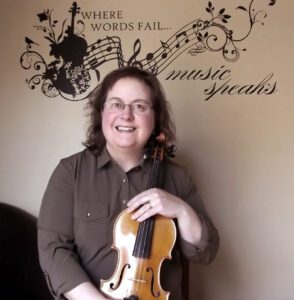
Theoretically Speaking…
… as we each begin the new academic year, what if we had a functional plan in place to make music-theory teaching a more integral part of our vocal and instrumental lessons?
Taking it back a step, what if there were an easy way to provide music-theory assessments for a variety of instruments beyond piano, simply through our WSMTA memberships?
WSMTA has already turned that theory into reality! Last year, extensions to the Music Literacy Program’s (MLP) Written Theory, Sight Reading, and Technique tests were rolled out to expand these programs for Levels 1-10 of bowed string instruments, and Written Theory in particular to all Treble and Bass instruments. Listening tests have been annotated with ways to tailor the test more to the learning progression of instrumental and vocal students. (Rhythm tests are the same for everyone.) The MLP can be administered through a chapter-wide event like a Carnival or Ribbon Festival, or by individual teachers in their studios.
But how to prepare students starting September 1 for testing that usually takes place in the spring? You can start by implementing the WSMTA Music Literacy Curriculum Guide, as modified for vocal/instrumental teaching. It spells out exactly the knowledge and skills required for each level of the MLP test subjects. The Technique tests for bowed strings are available separately to use as a teaching rubric: see the WSMTA Music Literacy Program page and scroll down under “Resources for Teachers.”
Engaging students in theory-building activities is a challenge for many instrumental instructors, without dedicated workbooks for every instrument specialty. I use the free exercise customizer on the MusicTheory.net website to build and save repeatable quizzes on note recognition, key signatures, intervals, scale building and more. I love this resource because it can be customized for any instrument and difficulty level! The quizzes are posted as links on my studio website, so students can do them on their own at home from a computer or tablet. I can spend 5-10 minutes every few lessons going through these quizzes, using the associated Tenuto app on an iPad ($4.99 in the App Store). As I observe the student interacting with the quiz, I can offer hints and deduction tricks where they have a hard time reaching the answer on their own. The repetition built into the quizzes reinforces the learning process.
You are invited to explore my customized quizzes for violin, shared at the link above. I have grouped the quizzes into levels that match the knowledge requirements for corresponding MLP levels.
I hope these resources will encourage you to make the most of the Music Literacy Program this coming year!
Jane Melin, NCTM, WSMTA Vocal/Instrumental Chair
[email protected]